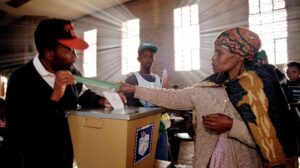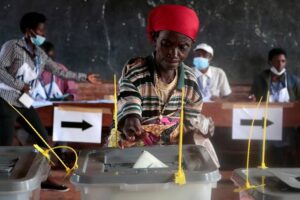South Africans with special permission to vote early began casting their ballots on Monday, ahead of the main elections scheduled for Wednesday.
At a retirement home, numerous residents eagerly cast their special ballots, avoiding the long queues anticipated on the official voting day. The special voting process caters to registered voters unable to travel to voting stations due to physical challenges such as disability, pregnancy, or advanced age.
Independent Electoral Commission (IEC) staff played a crucial role by visiting the elderly at their homes to assist them in exercising their right to vote and explaining the process to them.
Also, read; 7 Influential African Empires That Shaped History
This election will be a significant indicator of the public’s sentiment toward the ruling African National Congress (ANC) party, which has been in power since the end of apartheid 30 years ago. The main election day on Wednesday will see voters from all nine provinces casting their ballots to determine the makeup of both the national and provincial legislatures.
With nearly 28 million registered voters out of a population of 62 million, this will be South Africa’s seventh fully democratic national election since the dismantling of apartheid. Results are expected to be announced within days of the election.
The outcome will reveal how weary the country has become of the ANC’s governance and will potentially shape South Africa’s political landscape for the coming years.

